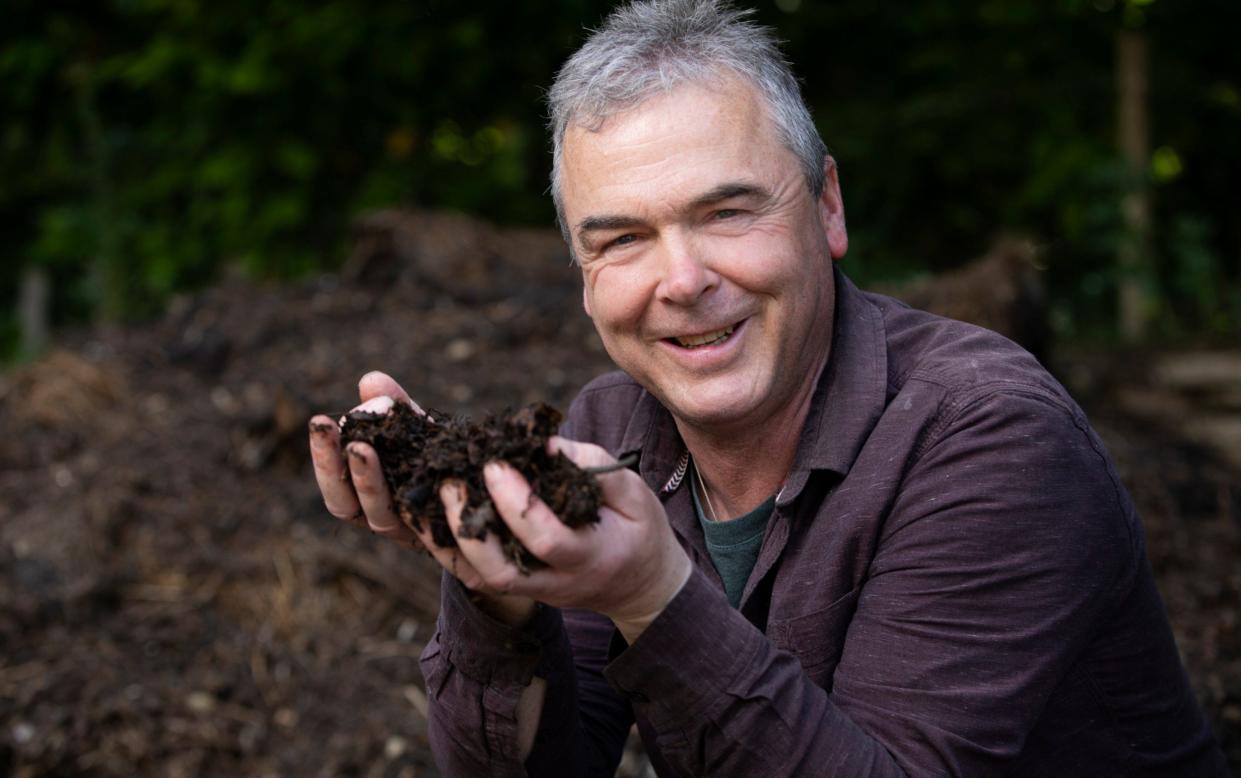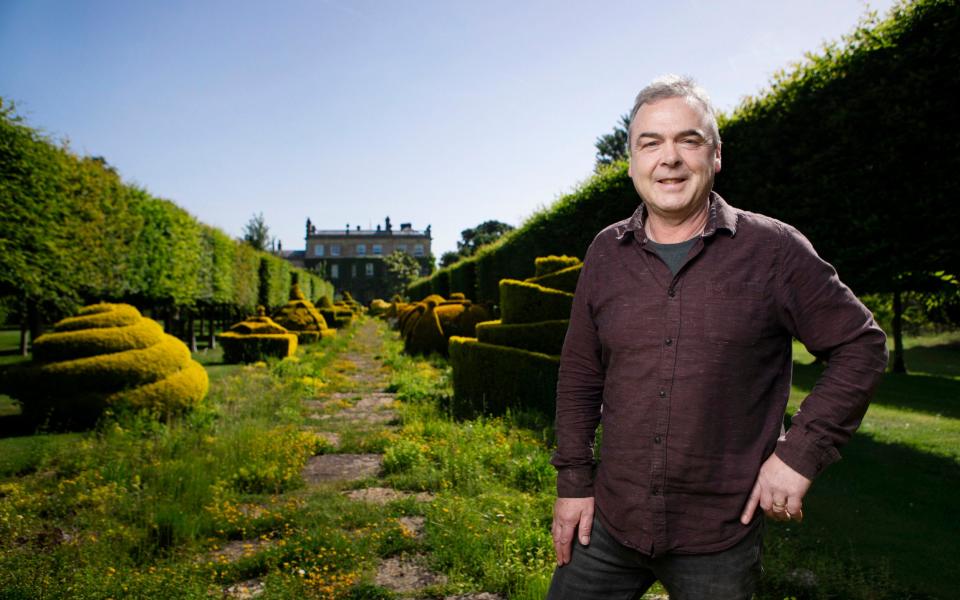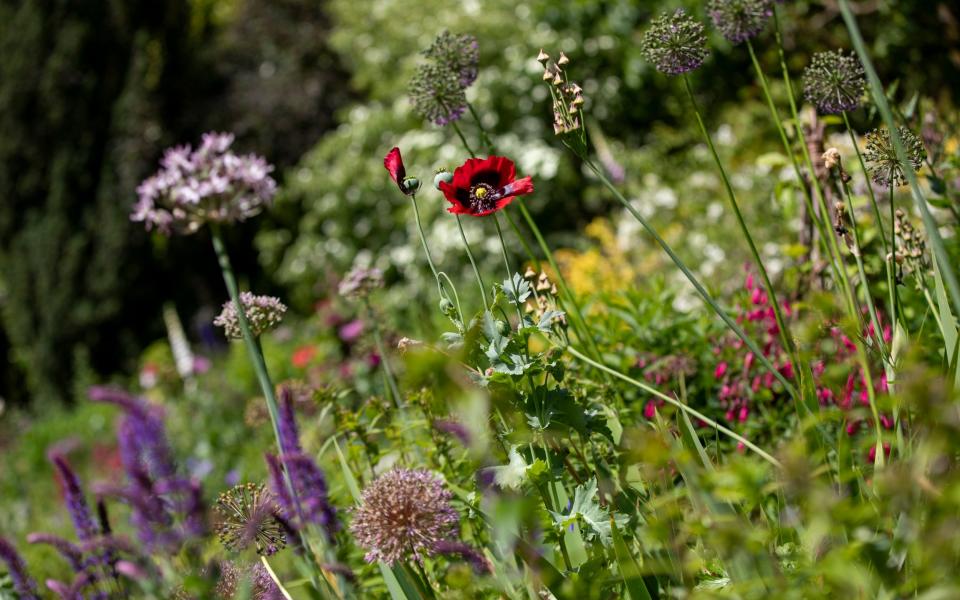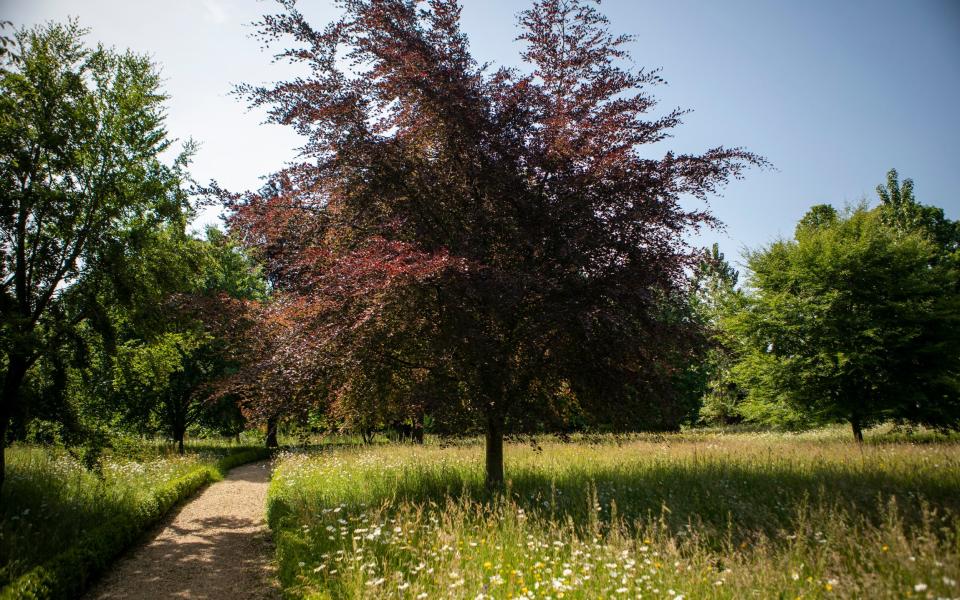Prince Charles turns paperwork into compost at Highgrove

Prince Charles' head gardener is developing compost by using shredded paperwork and organic waste from the Highgrove estate to help tackle the impact of climate change.
"Anything that is compostable, we use. And in the future we hope to expand," Brian Corr told the Telegraph on a recent visit to the 15-acre estate near Tetbury in Gloucester. "We want a proper operation, properly composted, and to show excellence in how to do it."
Kitchen leftovers, garden waste and even shredded documents from the estate's offices already go into making valuable compost. But Mr Corr wants more, and has set his sights on expanding the garden’s compost operation more than threefold in the next few years.
It is not just about making the most of the garden’s waste. This organic compost has vital nutrients and having a steady supply means they can regularly top up the soil, helping to retain moisture as the estate adapts to increasingly warm temperatures.
Mr Corr agrees it would be "fun" if there was Duchy Organic compost for sale one day.

Mr Corr, who has been gardening for 40 years since he was taught by his father as a child in Derry, moved to Highgrove last year from his role as head gardener at Dumfries House in Ayrshire.
The biggest change has been adapting to the warmer southern temperatures.
"I'm gardening in a completely different climate now," he said. "I had minus 21C in Scotland in the wintertime, and frost in every month except July and August."
But that climate is also changing, and as well as increasing its organic compost, Highgrove is looking to adapt by using more drought resistant plants, such as euphorbias, sedums, salvias and hollyhocks.
"We’re always trying to compensate for increasing temperatures and climate change. But it's hard to predict what it's gonna look like," said Mr Corr. "It makes gardening more labour intensive."
For decades, Highgrove has long led the way in horticulture that is more nature friendly, and the gardening world is now starting to catch up.

Thirty-five years ago, Prince Charles introduced a wildflower meadow to the estate, devised in a collaboration with the botanist Dame Miriam Rothschild.
Wildflower meadows now grace gardens across the country, including the grounds of Salisbury Cathedral, King’s College, Cambridge and several London councils.
It is all part of a trend of planting to protect declining populations of pollinators, which encourages wilder gardening and reductions in pesticide use.
The effect can look like a garden has been left to its own devices, but Mr Corr says it is not as easy as it might seem, even with the team of seven gardeners at Highgrove.
"It does take a bit of managing," he said. "But it is showing what can be done even in your own garden, on a smaller scale."
Creating a wildflower meadow requires cutting back the grasses and planting crops that will compete with its regrowth. But once established, it can be left to spread naturally, as they have done in the fields on the estate.
"You can just see the beauty of it. The pollinators and the diversity of the insect life and everything is increased because it’s providing nectar and pollen," he said.
Not every gardener is convinced by the idea of downing their strimmer and pruning shears.
Monty Don was among those to question the awarding of the RHS Chelsea prize this year to a garden that evoked a rewilded landscape. "Is it a garden?," the Gardeners' World presenter asked.

But for Mr Corr, the choice does not have to be so binary. Highgrove is not about to abandon its pruned hedges, exotic plants or manicured edges any time soon. Even the wildflower meadow is kept within its borders, and he is sceptical of some criticism of exotic plants.
"You don't always have to do the whole thing as a wildlife garden," he said. "You can leave patches at the back, perhaps grow nettles, that encourages butterflies and other pollinators."
He added: "Bees and butterflies, they’re not fussy about native plants as long as they can get the nectar in the pollen.
"There's still formality here, but there's this informality as well."

 Yahoo Movies
Yahoo Movies 
